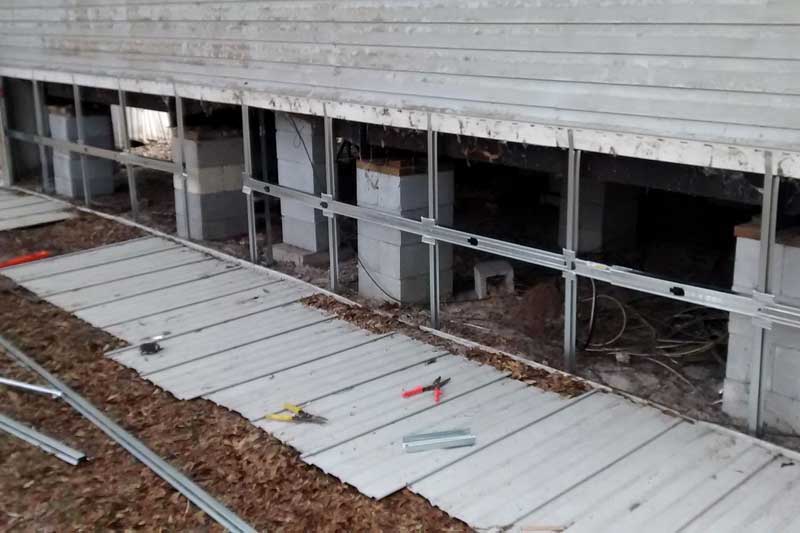Financing a Mobile Home with FHA and Understanding Bank Loans for Homes with Asbestos Siding

Understanding FHA Financing for Mobile and Manufactured Homes
Financing a factory-built home is a practical path to affordable homeownership, but it requires a clear understanding of what qualifies for Federal Housing Administration (FHA) loans. While the terms “mobile home” and “manufactured home” are often used interchangeably, FHA draws a critical distinction based on construction date and safety standards. If you are considering buying or refinancing a manufactured home, knowing these requirements is essential for successful financing.
What Type of Mobile Home Qualifies for FHA Financing?
FHA loans are available for manufactured homes built on or after June 15, 1976 . This date marks the start of the U.S. Department of Housing and Urban Development’s (HUD) enforcement of national construction and safety standards for factory-built housing. Homes built before this date are technically considered “mobile homes” and are not eligible for FHA financing due to the lack of standardized safety codes at the time [1] , [2] , [3] .
FHA Loan Programs for Manufactured Homes
The FHA offers two main programs for manufactured homes:
- Title I Program : Allows you to finance the home, the lot, or both. The home does not have to be permanently affixed to owned land. This is a common choice for buyers placing a home in a manufactured home community or on leased land. The home must meet HUD installation standards and local foundation requirements [5] .
- Title II Program : Requires the home to be permanently attached to land you own. The home must be classified as real estate, not personal property. Most traditional FHA lenders offer financing under this program for manufactured homes that meet HUD’s guidelines [1] .
Both programs require the property to have access to water and sewer facilities, adequate site suitability, and for new homes, a one-year manufacturer’s warranty [5] .
Key FHA Eligibility Requirements for Manufactured Homes
To qualify for an FHA loan on a manufactured home, you must meet several criteria:
- Construction Date: Home must be built on or after June 15, 1976, and display a HUD certification label.
- Minimum Size: The home must have at least 400 square feet of living space [2] .
- Foundation: For Title II loans, the home must be permanently affixed to a foundation that meets HUD standards.
- Primary Residence: The property must be used as your primary residence.
- Credit Score: FHA loans are available to buyers with credit scores as low as 500, but a higher score (typically above 580) lowers your required down payment to 3.5% [1] .
How to Apply for FHA Financing on a Manufactured Home
Follow these steps to pursue FHA financing:
- Confirm the home’s construction date and HUD certification label.
- Verify that the home meets size and foundation requirements.
- Gather documentation, including proof of income, credit history, and information about the home and land.
- Contact an FHA-approved lender. You can find a list of approved lenders by searching “FHA approved lenders” on the official HUD website or contacting large mortgage companies that specialize in government-backed loans.
- Complete the loan application and provide all requested documents. The lender will order appraisals and inspections as needed.
- If approved, proceed to closing and make arrangements to move into your new home.
If you are unsure whether your home or land qualifies, ask your lender for guidance on FHA standards or consider speaking with a HUD-approved housing counselor.

Source: fhalenders.com
What If Your Home Was Built Before June 15, 1976?
Homes built before this date do not qualify for FHA loans. However, you may explore alternative financing options such as personal loans, chattel loans, or specialized lenders who work with older mobile homes. These loans often have higher interest rates and shorter terms, so compare offers carefully and understand all costs involved.
Will a Bank Finance a House with Asbestos Siding?
Many older homes in the United States feature asbestos siding , a material widely used for its durability and fire resistance before health risks were fully understood. If you are considering buying or refinancing a house with asbestos siding, you may wonder if banks or mortgage lenders will approve your loan.
Mortgage Lender Policies on Asbestos Siding
Most banks and conventional lenders do not have a blanket prohibition against financing homes with asbestos siding. However, lending approval depends on the home’s condition, the type and state of the asbestos, and whether it poses a health or safety risk. Key considerations include:
- Condition: Lenders typically require the siding to be in good repair with no visible damage or loose material. Intact asbestos siding is generally considered low risk.
- Inspection: During the home appraisal, if the siding is damaged or deteriorating, the lender may require repair or encapsulation before closing.
- Loan Type: FHA, VA, and USDA loans may have stricter requirements regarding asbestos, especially if there is evidence of contamination inside the home. Some lenders may require professional asbestos testing or abatement as a condition of approval.
Steps to Take When Financing a Home with Asbestos Siding
- Hire a qualified home inspector familiar with asbestos-containing materials.
- If the inspector notes damage or deterioration, consult a certified asbestos abatement professional for recommendations and a cost estimate.
- Share inspection and remediation details with your lender. Be prepared to negotiate repairs or escrow agreements if required.
- If the siding is intact and poses no risk, document its condition and provide this information as part of the loan application process.
If you are applying for a government-backed loan (FHA, VA, USDA), review the specific property standards for asbestos and consult your lender regarding any required remediation or certification.

Source: mobilehomesell.com
Alternatives and Solutions for Challenging Cases
If you encounter difficulties securing bank financing due to asbestos siding, consider the following alternatives:
- Request the seller to address asbestos concerns before closing, possibly through repair, encapsulation, or removal by licensed professionals.
- Negotiate a price reduction or escrow holdback to cover remediation costs after purchase.
- Seek out local or regional lenders known for working with older homes, as their underwriting policies may be more flexible.
- Contact your state’s housing finance agency for programs supporting buyers of older properties.
Finding Professionals and Resources
To locate certified inspectors or abatement contractors, search for “asbestos abatement” along with your state name, or visit the official website of your state’s Department of Environmental Protection or Health. You may also consult the U.S. Environmental Protection Agency’s asbestos resources page for up-to-date information on safe handling and legal requirements . Always verify that contractors hold proper state certification before engaging in any asbestos work.
Key Takeaways and Action Steps
Financing a manufactured home with FHA is possible if your home meets construction date and HUD code requirements. For homes with asbestos siding, most banks will consider financing as long as the siding is intact and poses no immediate health threat. If you face obstacles, alternative financing and remediation strategies can help move your purchase forward.
To get started:
- Verify your manufactured home’s age and certification before applying for FHA financing.
- Obtain a thorough inspection if your home has asbestos siding.
- Discuss all findings with your lender early in the process.
- Contact FHA-approved lenders or your state’s housing agency for more details on qualifying loans and programs.
- For asbestos concerns, consult state agencies or the EPA for lists of certified professionals.
References
- Rocket Mortgage (2024). Can you get an FHA loan on a mobile home?
- Paddio (2025). FHA Loan Requirements for Manufactured & Mobile Homes
- Neighbors Bank (2025). How to Get an FHA Loan for a Mobile or Manufactured Home
- HUD (2025). Financing Manufactured (Mobile) Homes (Title I)
- U.S. EPA (2025). Asbestos: Learn About Asbestos | US EPA






